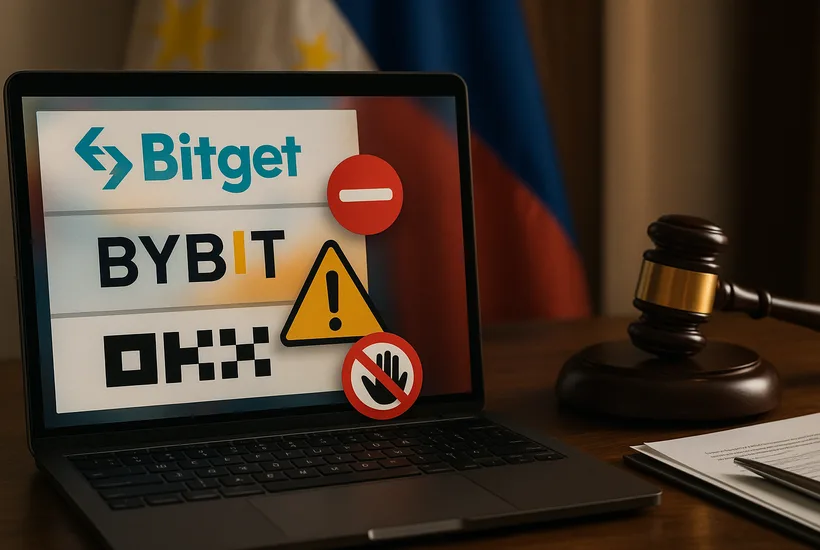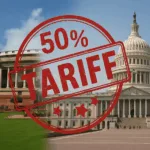- The Philippines’ SEC issued an advisory naming ten major crypto platforms such as OKX, Bybit, Bitget, as operating without authorization.
- Unregistered platforms face stiff penalties—including daily fines and potential criminal action.
- The Filipino crypto community pushed back, demanding balanced regulations instead.
The Philippines is intensifying its crackdown on unregistered cryptocurrency platforms. Major internet service providers PLDT (Smart) and Globe have begun blocking access to globally recognized exchanges. OKX, Bybit, KuCoin, Kraken, MEXC, Bitget, Phemex, CoinEx, BitMart, and Poloniex, who were issued warnings by the Securities and Exchange Commission (SEC) under its new Crypto Asset Service Provider (CASP) Rules.
Effective July 5, 2025, these regulations require crypto platforms to secure proper SEC registration before offering services in the Philippines. The SEC identified a list of unregistered platforms and cautioned Filipino investors about the potential risks, including loss of funds, identity theft, and exposure to fraud or money laundering.
In response, local ISPs, acting on directives rooted in NTC Memorandum Circular No. 001-01 s. 2025, have begun implementing DNS-level blocks on access to these platforms.
Newsletter
Get weekly updates on the newest crypto stories, case studies and tips right in your mailbox.
Tough new CASP rules and enforcement measure
The commission added that unregistered crypto-asset platforms may be exploited for money laundering and terrorist financing. “However, unregistered platforms often operate without effective anti-money laundering systems, and are not subject to monitoring by Philippine regulators. This creates serious vulnerabilities that have been repeatedly flagged by the Financial Action Task Force,” the SEC said.
Investor concerns and community backlash
The enforcement hasn’t been without backlash. Infrawatch PH, a policy think tank, escalated concerns by urging the SEC to shut down exchanges like OKX and Bitget. They raised concerns about aggressive promotions and unregulated operations targeting students and retail investors, mirroring the earlier crackdown on Binance in the Philippines.
Crypto users and communities online have pushed back sharply. Many argue that bans hinder financial inclusion and innovation. Some advocate instead for licensing and regulation, not prohibition, expressing frustration at preferential treatment towards gambling platforms over crypto services.
 Stacy Pereira
Stacy Pereira









